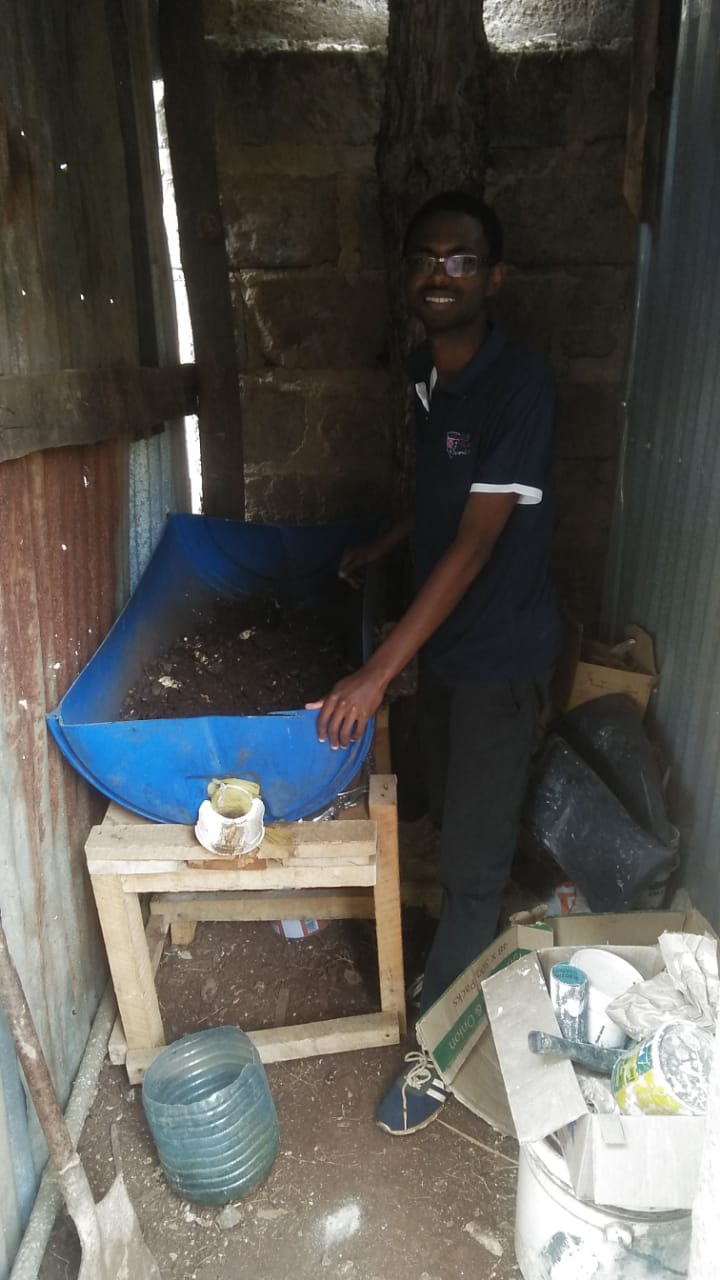Instead of idly waiting for his graduation, Samuel Gichohi, a student-cum-farmer having come across some information online about earthworm farming (vermi-culture) started rearing redworms in March this year expecting to earn at least Sh1,800 per kilo of the worms.
After completing his Barchelor of Arts in Geography and Environmental Studies course at the University of Nairobi last year December, he decided to start Geographic Information Systems (GIS), an online job in which he uses GIS software to make and correct maps as a GIS cartographer.
At the flipside, he could do some online research on earthworm farming which he had developed intense interest in following a motivation story of a farmer from Ruaka that he came across.
“With some capital I got from my online job, I set out to inquire from the farmer who advised me to first go for a training at Jomo Kenyatta University of Agriculture and Technology (JKUAT) to get the agronomical knowledge on how to rear the worms,” said Gichohi.
He therefore parted with Sh5,000 fee for the one-day course of which thereafter he bought some redworms and compost (a medium through which the worms live) at a total of Sh7,000. He also made a structure with two beds made of blue plastic drum cut top-bottom to male the beds.
Gichohi says that the vermi-culture bed can be thick plastic or fibre containers which are placed on raised timber. The bed should be 10 feet long, three feet wide and two feet high. The containers are put soil at the bottom, some manure where the worms breed and covered with grass. Before introducing the red worms, the bed should be watered adequately so that the moisture content is about 70 per cent.
“The worms threat through their skins hence enough moisture is favourable which can be enhanced by covering the beds well to further prevent sunlight rays striking the pits.”
Samuel Gichohi at his vermi-culture farm at Ngong.
After completing the structure at a cost of Sh3,500 at Ngong at his parents’s quarter piece of plot, he introduced the worms in the beds in March this year and in three months period, he recorded a significant increase in the number of worms following a proper feeding on organic matter.
Currently, he says the worms are ready for commercialization and he is targeting fish and crop farmers as his main consumers.
“The worms are better feeds for the fish while crop farmers can also use them to help in churning organic kitchen wastes for manure,” said Gichohi.
For a start, he is planning to begin selling a kilo of the worms at Sh1,800 as he focuses on sensitizing farmers on the importance of the earthworms in organic farm productions.

He is now focusing on his forthcoming graduation this December which set him free to move his venture to the next level.
“My graduation was stuck due to some technical reasons, but now I have sorted out everything. After this, i Iant to up my production and marketing.”
Gichohi can be reached on +254 710 595 844.